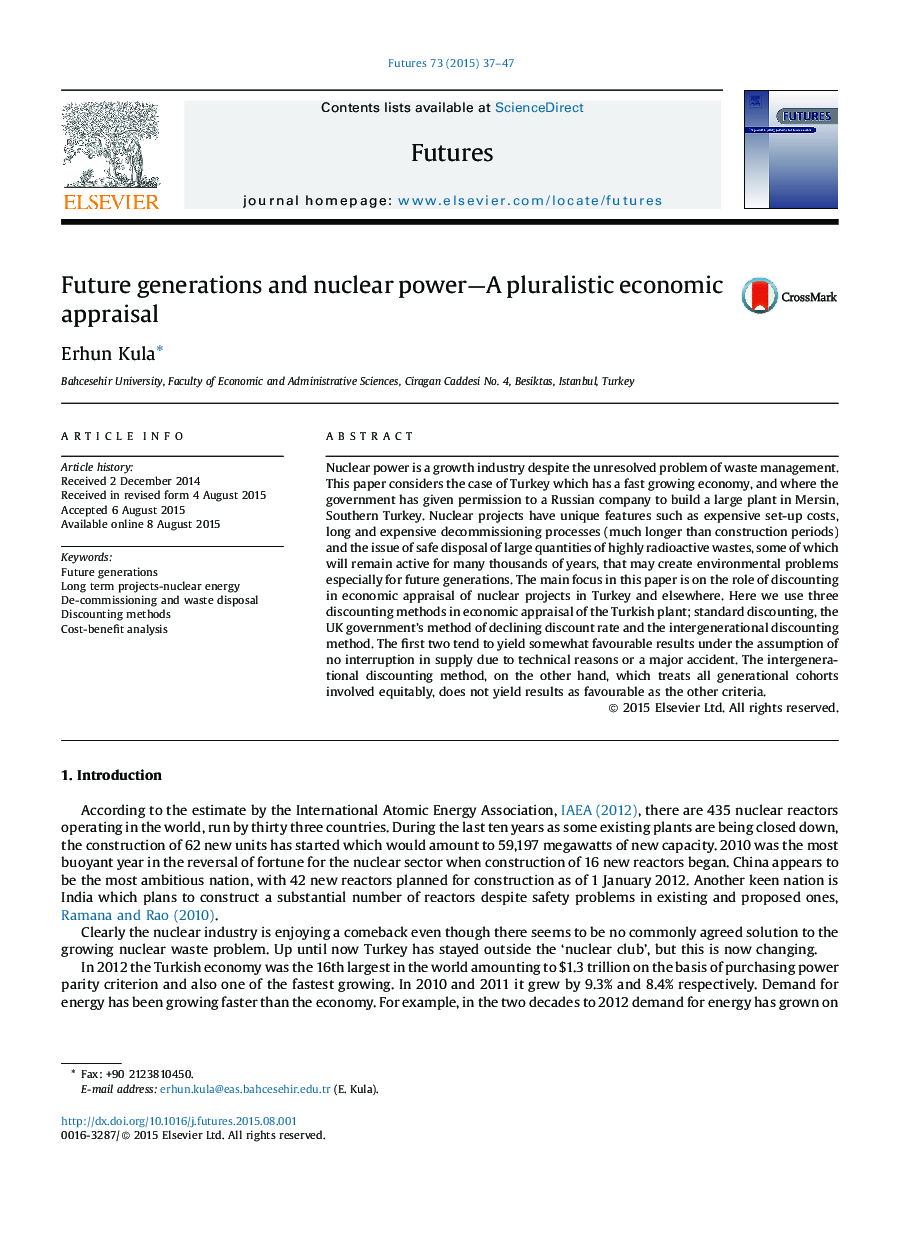| کد مقاله | کد نشریه | سال انتشار | مقاله انگلیسی | نسخه تمام متن |
|---|---|---|---|---|
| 1015424 | 1482757 | 2015 | 11 صفحه PDF | دانلود رایگان |
• Looks at the economics of one of the longest living investment projects—nuclear power.
• Appraisal of this project includes distant costs such as de-commissioning, repository building and sealing.
• Contends that in economic evaluation of long-term projects there is more than one method of discounting.
• Some popular discounting methods reduce distant future costs, which will be incurred by future generations, into practically zero raising moral questions.
• Intergenerational discounting method, which treats all generations equally, does not wipe out future costs and thus makes nuclear projects less attractive.
Nuclear power is a growth industry despite the unresolved problem of waste management. This paper considers the case of Turkey which has a fast growing economy, and where the government has given permission to a Russian company to build a large plant in Mersin, Southern Turkey. Nuclear projects have unique features such as expensive set-up costs, long and expensive decommissioning processes (much longer than construction periods) and the issue of safe disposal of large quantities of highly radioactive wastes, some of which will remain active for many thousands of years, that may create environmental problems especially for future generations. The main focus in this paper is on the role of discounting in economic appraisal of nuclear projects in Turkey and elsewhere. Here we use three discounting methods in economic appraisal of the Turkish plant; standard discounting, the UK government’s method of declining discount rate and the intergenerational discounting method. The first two tend to yield somewhat favourable results under the assumption of no interruption in supply due to technical reasons or a major accident. The intergenerational discounting method, on the other hand, which treats all generational cohorts involved equitably, does not yield results as favourable as the other criteria.
Journal: Futures - Volume 73, October 2015, Pages 37–47
